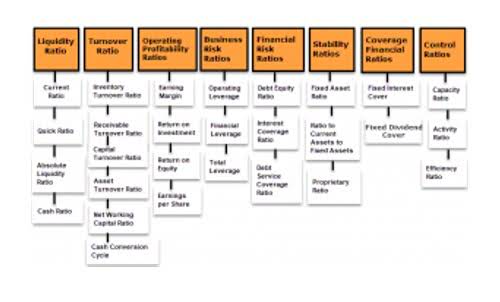
GAAP (Generally Accepted Accounting Principles) and IFRS (International Financial Reporting Standards). The primary output of the financial accounting system is the annual financial statement. The three most common components of a financial statement are the balance sheet, the income statement, and the statement of cash flows. In some jurisdictions, summary financial statements are available (or may be required) on a quarterly basis.
What is Accounting?
- In addition, financial statements disclose details concerning economic resources and the claims to those resources.
- After you enter a transaction and categorize it under an account, your accounting software will create a journal entry behind the scenes.
- To illustrate double-entry accounting, imagine a business sending an invoice to one of its clients.
- Analysts, managers, business owners, and accountants use this information to determine what their products should cost.
- Cost accounting focuses on a detailed break-up of costs for effective cost control.
- Essentially, bookkeeping serves as the foundation, while Accounting uses that foundation to provide strategic guidance and ensure financial transparency.
- Accounting software does a lot of the heavy lifting (such as keeping track of debits and credits) for you.
It sounds simple, but in reality, a lot of behind-the-scenes work goes into accurately reporting on a business’s financial state. The financial statements that summarize a large company’s operations, financial position, and cash flows over a particular period are concise and consolidated reports based on thousands of individual financial transactions. It prepares accurate financial statements, like cash flow, balance sheets, and income statements, to inform external stakeholders, such as investors and regulators. Ever wondered how businesses track financial health or ensure regulation compliance? The answer lies in Accounting—a systematic process of recording, analysing, and reporting financial transactions. This blog unravels What is Accounting, its diverse types, and its critical role in decision-making, ensuring you’re equipped with insights into this essential practice.

Financial Accounting
Accounting helps you gauge where your small business stands financially, what it can afford at any given time, and where its money is coming from and going. In addition to this financial overview, proper accounting practices prepare your business to file taxes and produce financial statements needed for potential investors or business loan applications. Accounting is the profession of tracking the assets or what is accounting cash flows of a company or other large organization, and recording how its finances spent.
What Is Accounting?
Accounting statements are regularly used by management, investors, and tax authorities to get a clear picture of how well an organization is managing its finances. For a small business, accounting involves tracking money flow in various forms, including operating expenses (e.g., marketing, utilities, rent), cost of goods sold, accounts receivable and sales. It also takes into account liabilities, such as accounts payable, business loans and taxes, and the value of your assets, such as cash and inventory. Because their reports are regularly scrutinized by oversight agencies, accountants are required to adhere to a uniform set of accounting standards. These rules specify how to record income, expenditures, assets, and losses, so that auditors have an objective view of the organization’s financial health. To illustrate double-entry accounting, imagine a business sending an invoice to one of its clients.


Let’s say a client just paid their invoice online, or money was withdrawn from your checking account to pay a utility bill. Most business owners opt for small-business accounting software to help automate the process and reduce the likelihood of error. Without accounting, investors would be unable to rely on timely or accurate financial information, and companies’ executives would lack the transparency needed to manage risks or plan projects. Regulators also rely on accountants for critical functions such as providing auditors’ opinions on companies’ annual 10-K filings. In short, although accounting is sometimes overlooked, it is absolutely critical for the smooth functioning of modern finance. These rules are outlined by GAAP and IFRS, are required by public companies, and are mainly used by larger companies.
- Aspiring CPAs are expected to have a bachelor’s degree, more than two years of public accounting work experience, pass all four parts of the CPA exam and meet additional state-specific qualifications if required.
- Information is relevant to the extent that it can potentially alter a decision.
- By imparting insights into profitability, cash flow, and economic stability, Accounting empowers businesses to strategise, grow, and remain compliant with legal requirements.
- This is the act of tracking and reporting income and expenses related to your company’s taxes.
- Specialties include general financial planning, career development, lending, retirement, tax preparation, and credit.
These reports are usually sent to all investors and others outside the management group. Some companies post their financial statements on the Internet, and in the United States the financial reports for public corporations can be obtained from the Securities retained earnings balance sheet and Exchange Commission (SEC) through its website. The preparation of these reports falls within a branch of accounting known as financial accounting. Accountants help businesses maintain accurate and timely records of their finances.

- Tax professionals include CPAs, attorneys, accountants, brokers, financial planners and more.
- Tracks the financial performance of specific projects, ensuring they remain within budget and meet financial objectives.
- Accounting standards are formal guidelines ensuring consistency, transparency, and legal compliance in financial reporting, fostering trust among stakeholders and aiding informed decisions.
- These tools enable the business owner to monitor cash flow, evaluate business performance, and make informed financial decisions.
- You can outsource your accounting work to outside professionals who specialize in bookkeeping and tax preparation.
These four largest accounting firms (Ernst & Young, KPMG, PricewaterhouseCoopers, Deloitte) conduct audit, consulting, tax advisory, and other services. These firms, along with many other smaller firms, comprise the public accounting realm that generally advises financial and tax accounting. While financial accountants often use one set of rules to report the financial position of a company, tax accountants often use a different set of rules. These rules are set at the federal, state, or local level based on what return is being filed. Accounting is the process Interior Design Bookkeeping of keeping track of your business’s financial transactions. Internal users may include the people that plan, organize, and run the organization.